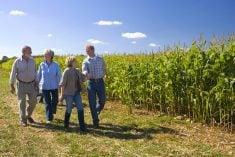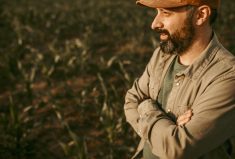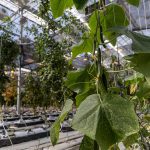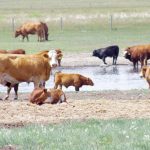Agriculture’s future will rely on attracting capital.
In the past, capital typically came from banks or family.
But the changing demographic of farmers and farmland owners means that many farms and a tremendous amount of farmland will change hands over the coming decade.
Read Also

Lessons from the past: How Canada can reverse its shrinking share of the global food market
A historic look back at how Canada has positively dealt with trade issues — and how those lessons can inform future moves.
To add to the list of challenges, inflation and farmland appreciation has made farming increasingly unrealistic for someone not already in the industry. In recent years farm profitability and asset appreciation has tempted more kids to return to the farm. In many cases, though, the farm isn’t big enough to support multiple families.
And whether it’s the Lake Diefenbaker irrigation project in Saskatchewan or Great Clay Belt tiling and clearing in Ontario, additional capital will be required since many farms won’t be able to absorb the extra investment.
Consolidation will also continue.
So, we have to ask: is there a way to attract capital that encourages more farms, not less?
Joelle Faulkner just might have the answer.
As CEO of Area One Farms, Faulkner has developed a unique farmland investment model, one that allows farmers to maintain or grow ownership of the land. Faulkner has spent the last 12 years pitching her model to investors.
“I think farmers should own their land,” says Faulkner. “The way that Area One has most successfully done that, supporting farmers in growing their acreage, is through equity partnerships.”
In addition to providing equity capital to farms, Area One provides 10 to 15 per cent of the annual appreciation, or “upside,” of farmland as a bonus to farm partners. The upside isn’t directly correlated to the investment made by the farmer, it’s a top-up provided by Area One.
Area One targets a 10- to 25-year time horizon for their investments.
Faulkner likes provincial ownership restrictions because they support her belief that farmers should own the land whenever possible. She suggests, however, that in provinces where farmland ownership is restricted, e.g., Saskatchewan, farmers may want to start considering not only the amount, but the type of farm investment capital needed, and adjudicating applications on that basis.
“Maybe the question should be, ‘What is the character of the capital we need?’ Maybe you want capital that gives equity to farmers or that helps farmers out of special debt arrangements. Maybe equity for farmers that want to irrigate multiple quarters at once and scale a farm faster.”
Faulkner asserts the best partner is still no partner. If a farm can fund growth internally or with debt financing, she says they should. In those cases, farm equity appreciation remains with the farm.
“We have found good partners who have bought farmland at a reasonable price and done cleanup work, all the things farmers normally do. Area One’s strategy was always to partner with people to help them achieve family farm commercial scale. This means we can give away upside. We work with a lot of people with normal size goals which means we can help more farm families.”
Faulkner believes this model addresses it all. “It’s a good story, it’s intergenerational transfer, it’s keeping farmland where it should be, owned by farmers.”
















